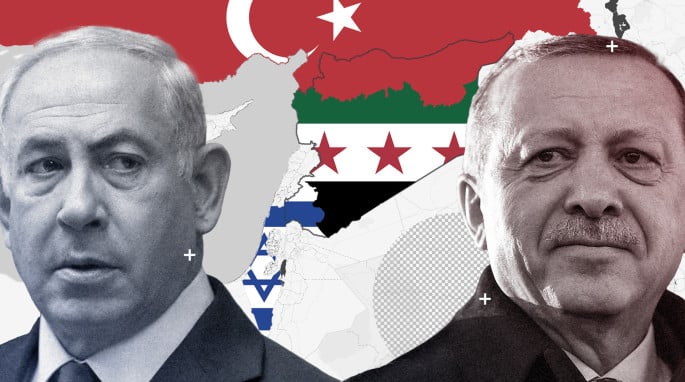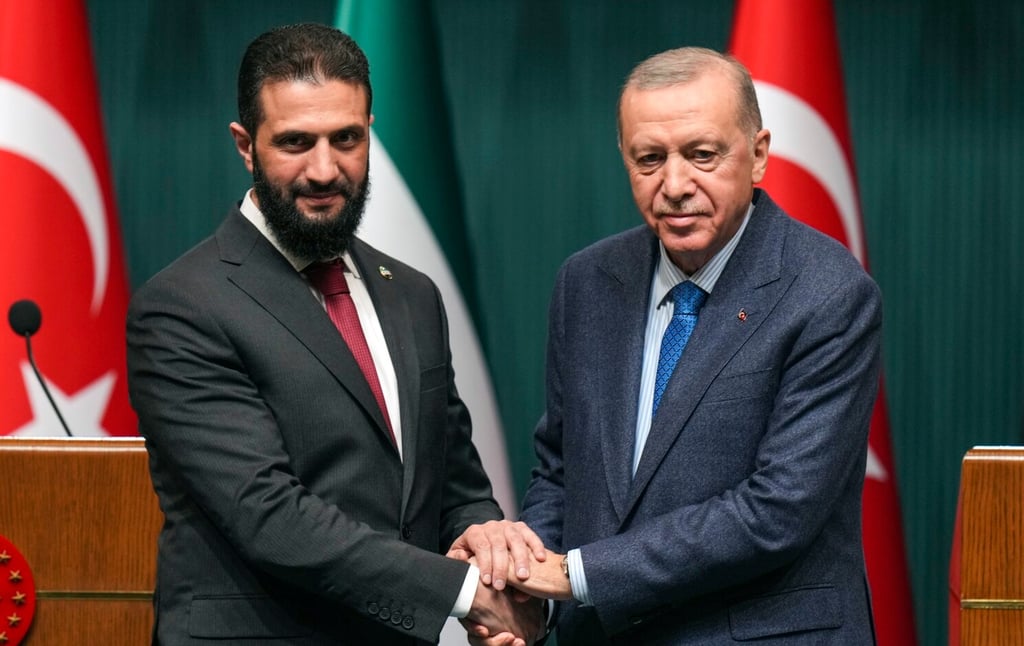Post-Assad Syria Becomes a Battleground for Turkish-Israeli Rivalry Amid U.S. Mediation Efforts
Following the fall of Bashar al-Assad, Syria has become a new arena for competition between Turkey and Israel, with both nations pushing conflicting visions for the country’s future while the U.S. attempts to mediate rising tensions.
WORLDPOLITICS
Resposible Statecraft
5/1/20253 min read


Since the ousting of Bashar al-Assad late last year, Syria has transformed from a multi-sided civil war into a strategic battleground between regional powers—particularly Turkey and Israel. Where once the country was contested by Iran, Russia, Hezbollah, and Gulf-backed rebels, a new phase of geopolitical rivalry is unfolding between Ankara and Tel Aviv, each with sharply different visions for Syria’s future.
Turkey is pushing for a unified Syrian state led by a government aligned with its interests, while Israel seeks to maintain Syria in a fragmented and weakened state, divided along ethno-sectarian lines. According to a recent Israeli government committee report, Ankara’s rising influence in post-Assad Syria is viewed as a serious security threat, with fears that Damascus could become a Turkish proxy under Sunni Islamist leadership.
This rivalry has already translated into military action. In the immediate aftermath of Assad’s fall, Israel launched airstrikes across Damascus and southern Syria—areas where Turkey has shown military interest. These strikes, along with attempted ground incursions and outreach to minority groups like the Druze and Kurds, appear aimed at stalling Turkish influence and keeping Syria fractured.
"Israel saw an opportunity and a power vacuum in Syria after Assad, launching numerous airstrikes and even attempting ground incursions," said Dr. Mustafa Caner of Sakarya University. He described Turkey as the “balancing force” resisting Israeli efforts to control Syria’s future direction.
Despite these tensions, experts say a direct military clash between Turkey and Israel remains unlikely. On April 9, Turkish and Israeli officials held quiet talks in Azerbaijan aimed at establishing a “deconfliction channel” to avoid accidental confrontations in Syrian airspace or on the ground.
Dr. Pinar Dost of the Atlantic Council noted that such arrangements are not unprecedented. “During Syria’s civil war, similar mechanisms were established between countries with opposing interests, such as Turkey-Russia and Russia-Israel. A Turkey-Israel channel is logical and likely.”
Still, Syria’s fate remains entangled in wider power struggles. “Proxy wars in Syria are far from over,” said Dr. Karim Emile Bitar of Sciences Po Paris. “The combination of Israeli overreach and growing Turkish appetite risks deepening Syria’s fragmentation.”
“The proverb says when elephants fight, it’s the grass that suffers—Lebanon was once that grass. Now Syria is,” Bitar added.
Photo: The New Arab


The U.S. Role: Mediator or Architect?
Amid this complex rivalry, the United States is trying to play mediator. The Trump administration, signaling a withdrawal of troops by year’s end, has pushed for Turkish-Israeli reconciliation and laid groundwork for a transitional Syrian arrangement involving the Syrian Democratic Forces (SDF) and the new Damascus government.
During an April 7 Oval Office meeting, Trump praised Turkey for its role in Assad’s removal and described his relationship with President Erdogan as “very, very good.” He urged Israeli Prime Minister Benjamin Netanyahu to be “reasonable” in Syria, signaling Washington’s recognition of Turkey’s stake in the country’s future.
“Trump’s comments were essentially a warning to Israel to scale back,” said Dr. Caner. “He acknowledged Turkey as a balancing power and told Netanyahu that U.S. backing is not unconditional.”
While this drew Israeli frustration, analysts believe Trump’s strategy reflects a broader U.S. aim: to leave behind a Syria that, while fragile, does not descend into further chaos or spark direct conflict between its two key allies.
Dost agrees, adding, “The U.S. wants to ensure stability before withdrawing—particularly by securing normalization between Turkey and Israel.”
However, she also warns that the bigger issue looming over the region isn’t Turkish-Israeli competition, but Washington’s ongoing nuclear talks with Iran. Netanyahu, already reeling from Trump’s praise of Erdogan, now faces renewed U.S.-Iran engagement—a development that could further constrain Israeli policy in Syria.
As Syria rebuilds in the post-Assad era, it remains caught in the ambitions of larger regional players. Whether U.S. diplomacy can prevent another escalation—and whether Syria itself can reclaim sovereignty—remains to be seen.
Photo: The Associated Press
© 2026. Ke Press Global. A Ke Harbor Company. All rights reserved.
FOLLOW KE PRESS GLOBAL ON :
Contact us


